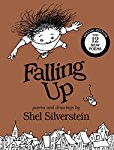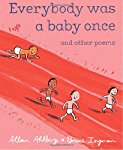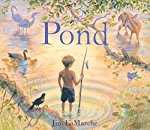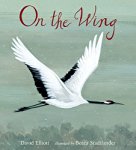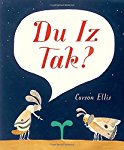When I first saw this book on a shelf in the library I thought it was going to be about a dog, which is a natural assumption to make I think. A dog does play a role in the narrative, but the story is really about a boy's relationship with (and discovery of) poetry. It is a fabulous book, a powerful book, a sometimes funny book, and I think readers of all ages will appreciate it.
 Love that Dog
Love that Dog
 Love that Dog
Love that Dog
Sharon Creech
Poetry
For ages 8 to 12
HarperCollins, 2001, 978-0060292874
Jack is in Miss Stretchberry’s class and he is not happy
because she is expecting her students to write a poem. Everyone knows that
girls write poems. It is a girly kind of thing to do. After claiming that his
“Brain’s empty,” Jack finally condescends to write a poem about a blue car speeding
down a road. He is rather put out when his teacher comments on how something is
missing in his poem. If Robert Frost can leave his poems incomplete why can’t
he?
Miss
Stretchberry then asks Jack to write a poem about a pet. Jack does not have a pet
anymore and he does not want to write about the dog that he had. We can sense
that doing so will be painful for Jack, and yet the boy does end up writing a
description of how the yellow dog became a member of his family; how they got
him from the animal shelter and saved him from being euthanized, which is what
happens to the shelter dogs that are not adopted. Miss Stretchberry asks Jack
if she can type up his poem about the yellow dog and share it with the class.
He decides that she can if she wants to, though she cannot put her name on the
piece.
Next Miss
Stretchberry introduces Jack and his classmates to concrete poems and these he
likes a lot. In fact he even tries to create one called My Yellow Dog, and he arranges the words so that they look like a picture
of dog on the page. Miss Stretchberry asks if she can type up his poem again
and this time Jack is willing to let her put his name on it, which is a new
development.
Inspired by a
poem that he loves that was written by Walter Dean Myers, Jack writes another
poem about his dog Sky, and in it he captures the joy the dog brings into his
life. It is a poem from the heart and Jack cannot help feeling pleased when his
teacher shares it with the class again.
When Miss
Stretchberry suggests that Jack should write to Walter Dean Myers, Jack is
appalled. Why would a famous writer like hearing from a kid? Surely he would prefer
to hear from a teacher “who uses big words / and knows how / to spell / and /
to type.” In the end Jack writes the letter, with many apologies to Walter Dean
Myers for taking up his time. Jack even invites the writer to come to his
school.
As he waits to
hear from Walter Dean Myers, Jack’s journey into the world of poetry
progresses. He starts learning how to type and finally he writes (and then types
up) a poem about what happened to Sky, though he is not sure about putting his
name on it.
This remarkable
book takes us through a school year with a boy called Jack. As the months go by
we see how this boy, who wants nothing to do with poetry at first, starts to
appreciate the way words in poems can capture moments and feelings in a fresh
and different way. Slowly, like a flower opening, he tries writing his own
poems. By the time we leave Jack, with his memories of Sky, he is a very
different child, and we, as witnesses to his journey of exploration, can
celebrate the changes that have taken place in him.

